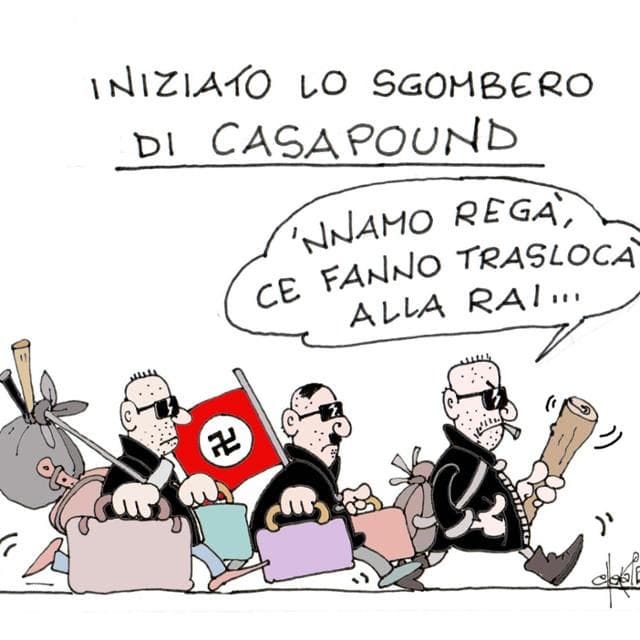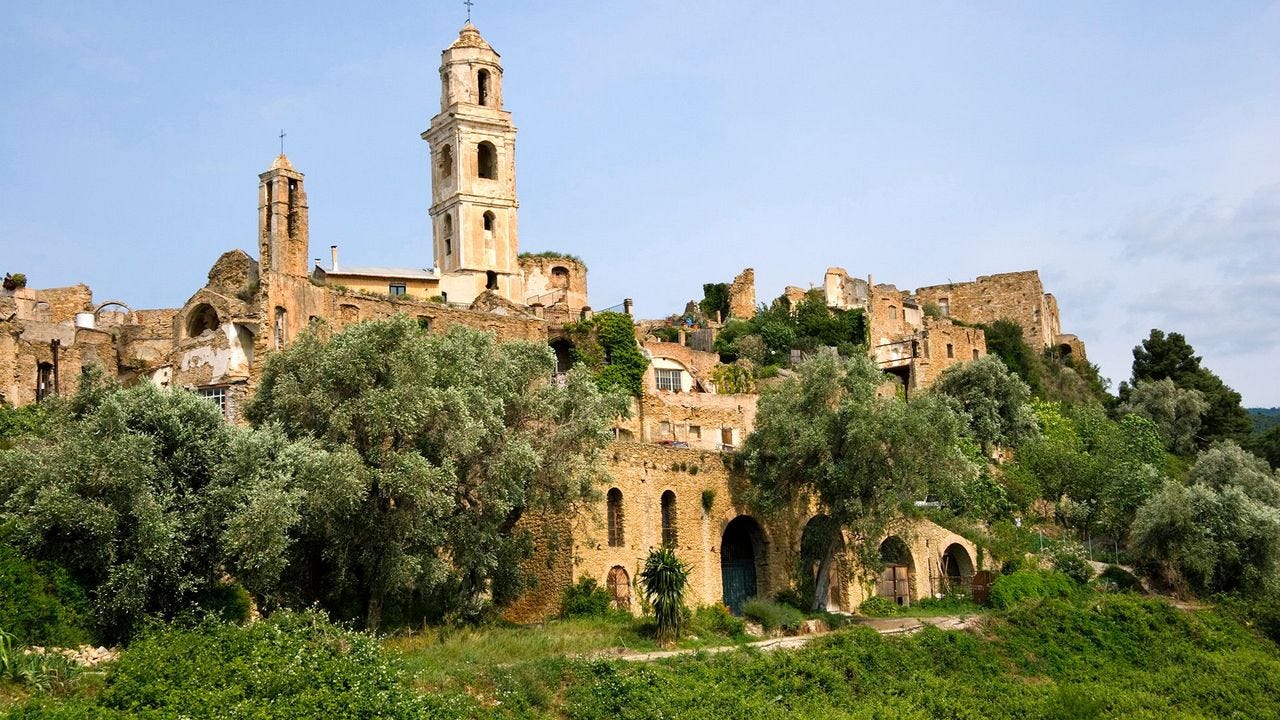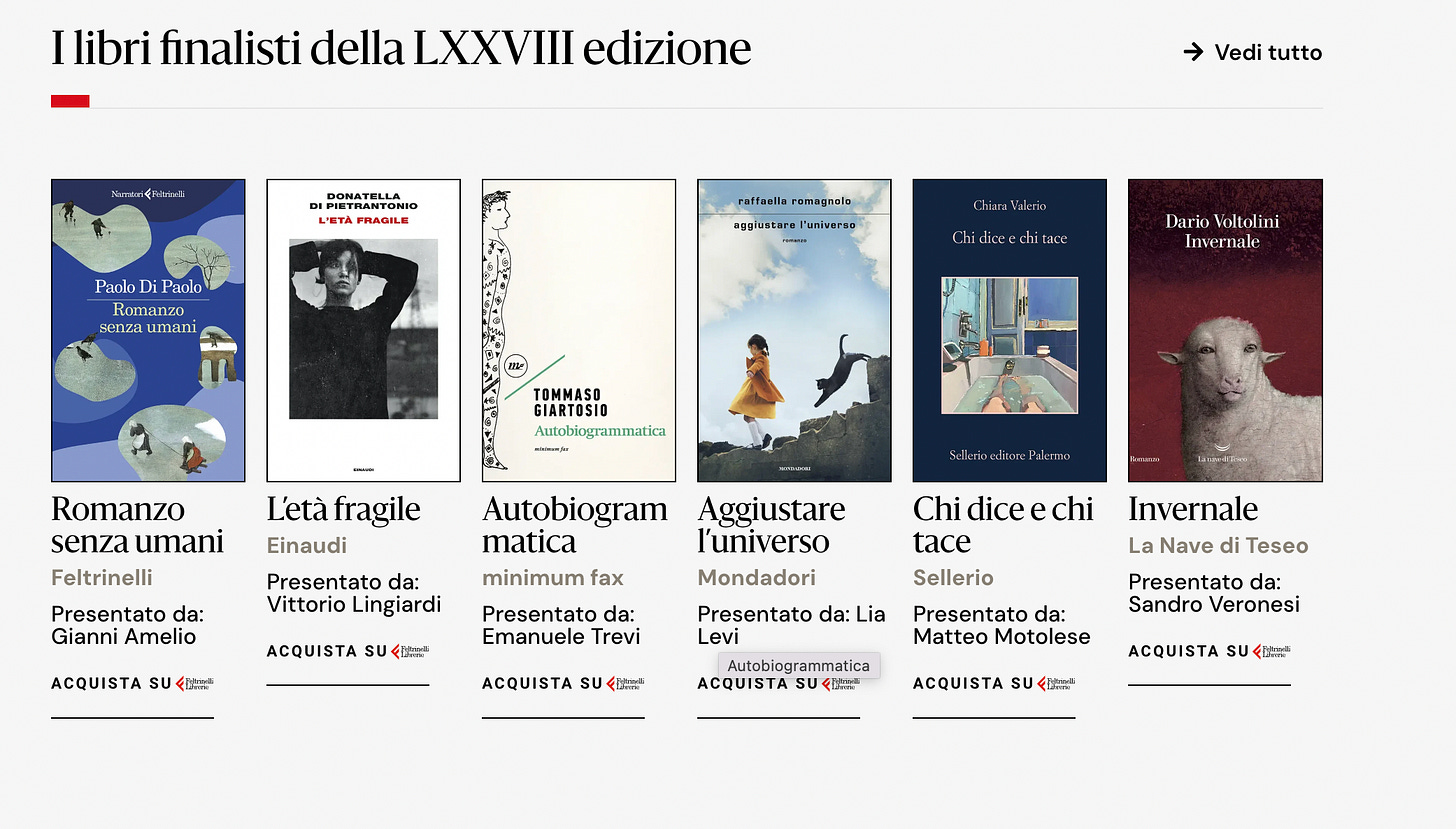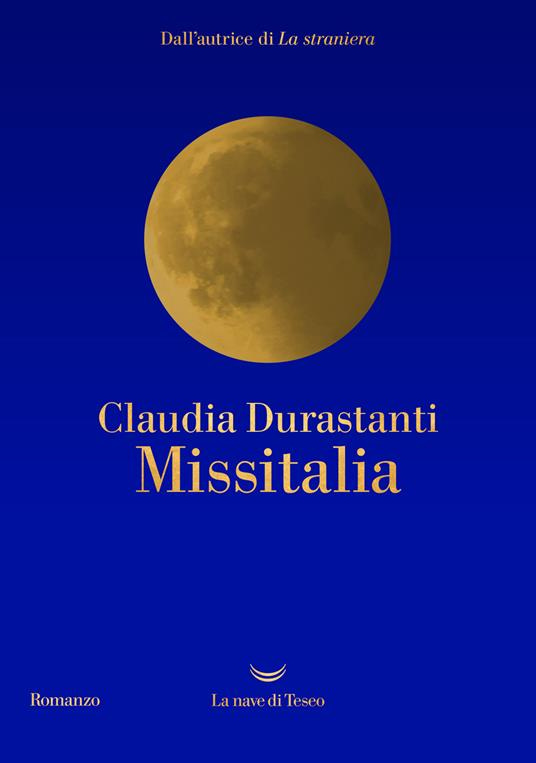First: a rare nugget of good political news, because, in spite of everything, such miracles can still occur! On Monday, Italy’s chamber of deputies passed a bill put forward by the left wing PD opposition politician Marco Furfaro which will finally give homeless people full access to the national health service. OK, I admit, when you look into the details, it’s not quite as simple as that — but this is a ‘victory’ nevertheless. In its first draft the bill was supposed to guarantee medical support to all homeless people in Italy at a projected cost of 4 million euros per year. In the end, Meloni’s government tabled a few amendments with the result they’ve instead signed-off on a trial scheme of 2 million euros to initially help individuals in Bari, Bologna, Cagliari, Catania, Florence, Genoa, Messina, Milan, Naples, Palermo, Reggio Calabria, Rome, Turin and Venice. This is still a big deal. Tens of thousands of people will now have easier access to first aid and emergency treatment. Not only this, they’ll be able to register for GP services and access vital scans and consultancies like any other citizen. There’s a lot more to unpack here, but I wanted to flag this story as a rare a triumph for human rights and a good reminder of how cross party dialogue can even now yield positive results. In more partisan terms, if I may, this is also an indicator of the power the opposition still holds in Parliament and a taster of the kind of changes they would push for in the event they were to ever win a majority. All these caveats aside, here is something to celebrate.
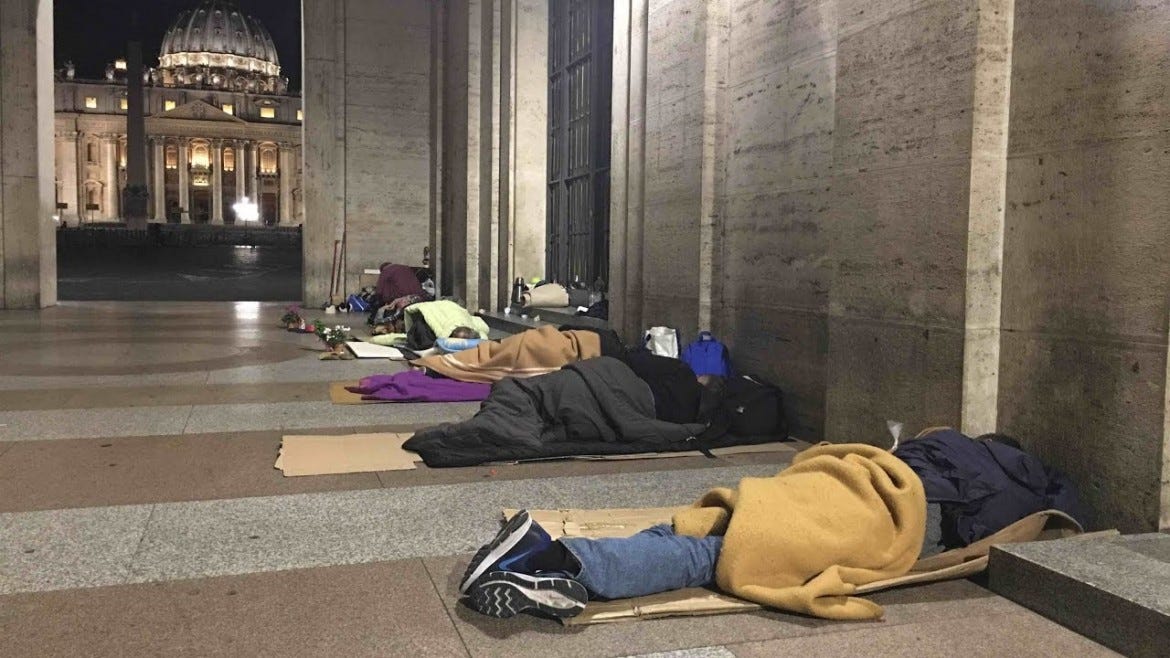
But back to the cesspit, alas. This week’s top anti-democratic scandal concerns RAI, Italy’s public broadcaster, which, as I’m sure many readers are aware, is a key pillar of the government’s propaganda strategy. Last month the organisation advertised for some new positions in the TV and Radio departments and, as one might have expected, the hiring process was, well, rather controversial. One of the beneficiaries was a man named Ferdinando Colloca (nickname “hard man Ferdy”). Colloca is a body painter and professional DJ who is best known among the locals of Ostia, near Rome, as being a lead figure in the neofascist movement Casa Pound. For some reason – actually, a very clear reason – he will now be in charge of daytime scheduling at RAI. This, in itself, would be cause enough for scandal. As it turns out, however, there’s more to the story than that. Colloca’s brother Salvatore, who has also worked at RAI, seems to have played some role in securing the post for his sibling. And if that wasn’t bad enough, both of the men allegedly have ties to the Spada clan (a small, local Lazio-based Mafia). It’s true, I know. Italian governments regularly abuse their authority over RAI. This was true under Berlusconi, under Renzi, Conte and many others. Even so, this shameless endorsement of fascism, nepotism and organized crime is a particular low and a powerful sign of how impoverished the Italian media has become under Meloni’s watch.
Way back in 1887 a tragedy struck the small Ligurian town of Bussana Vecchia when an earthquake hit, killing 53 people and reducing most of the buildings to rubble. The community was transformed into a ghost town; a sad (if picturesque) mess of stones and spires. This all changed in 1952 when a ceramist from Turin named Mario Giani headed to the ruined town with an idea of turning it into an artists' commune. For decades since Bussana has thrived as a meeting point for people seeking a life off the grid and closer to nature (something I for one can sympathise with!). Since 2017, sadly, that small utopia has been at risk of collapse. The local administration has been threatening the residents with eviction and as things stand the community is mired in a tug of war with authorities to preserve the right to the space. This is a marginal story — in a sense — but it does shine an important light on the ways Italy is changing today, and the ongoing pressures that communitarian and collectivist ventures face in preserving their existence. Catherine Bennett has done a great job writing up the story in ENG for the BBC, so check out the link here.
Arts and culture: a winning formula?
This week the Premio Strega — Italy’s most prestigious literary award — has been top of the nation’s cultural agenda with critics across the peninsula debating, as ever, whether the prize still reflects the best of Italian literature (or if it ever did). Well, looking at the shortlist the answer is….a bit. Yes. Maybe. To some extent. Paolo di Paolo’s Romanzo senza umani, Donatella di Pietrantonio’s L’età fragile, Tommaso Giartosio’s Autobiogrammatica, Raffaella Romagnolo’s Aggiustare l’universo, Chiara Valerio’s Chi dice e chi tace and Dario Voltolini’s Invernale all more or less conform to the generic requirements of a “Strega novel.” The form – as this great podcast by Internazionale summarizes — should ideally be a novel addressing an ‘easy’ theme for a mass audience: typically children, the natural world, or WWII history. The narration must be be simple — resembling everyday speech — without too much ornamentation. The authors, based on previous years, are usually young-ish men, or middle aged women. This year’s books, once again, largely conform to these well-known criteria. The only exception is Dario Voltolini’s Invernale which stands out, in my view, as a highly innovative exploration of a lonely man’s descent into illness and death. The winner will be announced tonight, at midnight - so do watch this space.
One author that did NOT make the Premio Strega list this year is Claudia Durastanti, one of the most talented young writers working in Italy right now, in my humble opinion. Durastanti’s latest novel Missitalia starts with an implausible premise which she nevertheless unpacks brilliantly to offer a powerful metaphor for the times we live in. On paper the idea is erm… rather baffling: Missitalia is a transhistorical sci-fi drama which follows three women living in different time periods in the remote rural region of Basilicata; together these three protagonists try to navigate various moments of technological development, from the birth of industry to the construction of a deep space exploration centre in the Lucania mountains. If this all sounds ridiculous the fact that Durastanti actually pulls it off – which she does – is a great testimony to her skills as a writer. Because ultimately, for all its eccentricity, this a profound book about feminist solidarity and intergenerational trauma with a strong satirical component that gleefully pokes fun at the hubris of tech-bro neo-futurists like Elon Musk. If you read Italian make sure to add this to your summer list [if you don’t, I heartily recommend Elizabeth Harris’s ENG translation of Durastanti’s last book Strangers I Know which was released in 2022.]
Recipe of the week: Roast apricot sorbet
I bought myself a little gift the other week to see in the hot days ahead: an ice cream machine; a gelato maker. This was — I admit — a bit of an unnecessary indulgence given I live two minutes from a tremendous gelateria here in Fiesole. But anyhow. I bought the thing. And I have to say, having just prepped my first recipe, I have zero regrets. After much debate – and much poring over fruit prices at the local market — I settled on a Nigel Slater recipe for roast apricot sorbet. The result was absolutely stunning. Fruit, sugar, water, lemon and that’s all. 30 minutes in the machine and you’re done. I admit, hyperbole aside, this was not quite as good as you’d get in a real artisan place, but this far (far) exceeded expectations for a first home experiment. So if you happen to own a gelato machine then do add this to your repertoire. If you don’t, I can heartily recommend investing 50 euros in a Princess Macchina per il Gelato, 12 W, 58.4 Decibel, a great purchase that I’m sure is going to get a lot of action over the next few months. Here’s that recipe again.
I’m Jamie Mackay, a UK-born, Italy-based writer, working at the interfaces of journalism, criticism, poetry, fiction, philosophy, travelogue and cultural-history. I set up ‘The Week in Italy’ to make a space to share a regular overview of the debates and dilemmas, innovations and crises that sometimes pass under the radar of our overcrowded news feeds, to explore politics, current affairs, books, arts and food. If you’re a regular reader, and you enjoy these updates, I hope you’ll consider becoming a supporter for EUR 5.00 per month. I like to think of it as a weekly catch-up chat over an espresso. Alternatively, if you’d like to send a one-off something, you can do so via PayPal using this link. Grazie!



